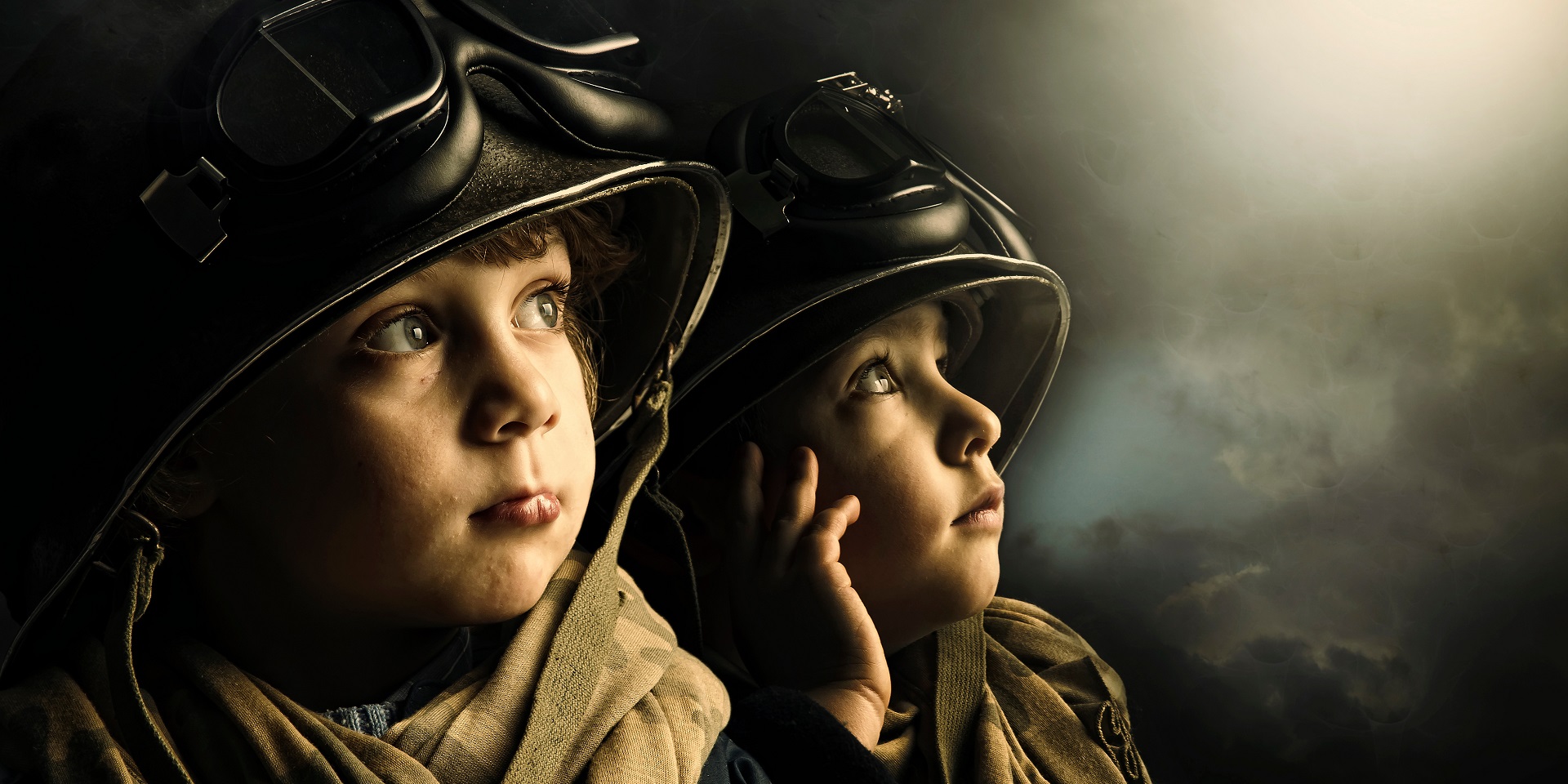Our children are forced to adapt to a world we did not want for them. As many mothers who attend coaching sessions say, the theme of war is one of the most difficult for them to address in discussions with their children, as they feel responsible for finding the balance between the child’s emotional security and their exposure to the reality around them.
Discussions about war involve many aspects: justice, selfishness, politics, humanity, courage, limits, heroism, fear, helplessness, confidence, vision, life, and death. Each aspect can generate a difficult but important conversation for children; all the more so, opening up a discussion that involves all of these topics is a challenge for parents. Nevertheless, addressing the subject of war with our children is far more beneficial than ignoring or even postponing it.
Here are some principles that are helpful for parents:
1. Think first about what you want your child to learn from the reality of war or this situation we are going through. This does not mean doing your homework in advance, presenting it to the child, and giving them lessons in morals or empathy, but rather being aware of the message that accompanies the discussion. Parenting expert Deborah Gilboa, addressing parents, asks: “What’s the one message you want to send along with the accompanying facts? Messages could include: ‘The war is far away and we’re safe,’ or, ‘Politics really matters in people’s lives and we have to vote,’ for example.”
2. Analyse yourself first. Where do you stand when it comes to war? What is your attitude? What thoughts go through your mind? What emotions dominate? Fear that we will also be involved in the war? Mercy for the victims or indignation towards those who attack? Remind yourself that these are your attitudes and not necessarily those of your child. Avoid using categories or labels like: Russians are bad, Ukrainians are good. Don’t make it about people, but about their actions, and make sure the child understands this.
3. Create a safe environment for your children to express themselves, especially emotionally. We can only do this if we have answered the previous questions honestly and if we are really curious and interested in the child’s inner reality without judging whether it is correct or not. Save the Children advises: “It is important that children feel supported in the conversation. They should not feel judged or have their concerns dismissed. When children have the chance to have an open and honest conversation about things upsetting them, they can feel relieved.”
Let them talk, cry, and end the conversation whenever they feel like it. Let them choose the course of the discussion, according to what is important to them at that moment. Maybe they’re not worried that they’ll have to leave the country, as it may seem at first, but whether or not you will be able to take their grandparents along.
When they begin to speak, give them time and space and ask open-ended questions, such as: “What is your biggest fear regarding the war? What annoys you the most about this situation? What do you think of when you say that? What does it mean for you to…?” Don’t try to influence them with questions like, “Are you afraid Dad will go to war too?” or “Do you think we’ll have to leave the country too?” These fears may be yours alone and might not exist in the child’s mind, but they may be stirred up by such questions.
4. Pay attention to the clues children give you in or outside the discussion, during the mundane activities of the day. Suddenly (though nothing happens out of the blue), my youngest son began to sing the other day: “You have no reason to be afraid.” When the younger sister forcibly took something from her older brother, he replied: “You’re like Putin.” Looking at Google Maps, a child tells her mother that she wants to go to an island in the middle of the ocean… Try to see what is beyond these reactions, to get to what even the child does not realize at the moment when they feel or think that.
When you intervene, do it gently and tactfully. Don’t say, “Are you singing this song because you’re scared?”, but rather: “It’s a beautiful song; I like it, too. How does it help you?” Instead of “Hey, don’t be mean to your sister,” or “Putin is a man too …”, rather ask them, “How is Putin? What annoys you about what you know about him, about what you heard that he did?” And as for leaving the country, don’t say: “This is not the time for us to leave,” or “We’re going to Spain,” but rather, “Wow, that island right there…. How is that place different from another place?”
5. Take into account the child’s age. Up to 3-4 years, the child absorbs the family’s emotions and atmosphere. Pay attention to what you look at in their presence, what you are talking about, the tone, the rhythm, and, if they ask, give them short answers. If you want to use comparisons, metaphors, avoid those like: “It’s like when mom and dad are having a fight.” See if they have any other questions, embrace them, and play with them.
Until the age of 7-8, pay attention to what questions the child is asking, what they are interested in when it comes to this war. You can use games, pictures, even video games if your child is already using them. One mother explained to her child that, unlike the characters in the games he played, he only had one life and could not start over. And when they attack planes and bomb buildings, it’s not really about the planes and buildings, it’s about people. To her surprise, the child stopped playing that video game.
With children up to the age of 12, we can make an analysis of the news we have listened to with the children or we can use history lessons and make comparisons between techniques, strategies, motives, what is ethical and what is not, and see what other solutions we may come up with.
Teenagers and youngsters already have personal sources of information and influence. That’s why it’s important to allow them to tell us what they know, or how they see it, even if we find out they want to volunteer. Restrictions like this don’t help much: “You’re not going anywhere. Do you want to leave and die there?” because this could kill their ideals of courage, freedom, devotion, and social contribution, which we actually want them to have.
We could help them by asking critical thinking questions: “How do you think you can realistically and impactfully make a difference? What makes this way of engaging important to you? What other options are there for you to get involved? What will be the impact on those around you if you do as you say? What else would change? What is behind this sense of duty?”
6. Bring the positive aspects to the fore, not as a delusion, but as an observed reality. For instance, we can talk about our grandparents who went through the war and survived. We can get involved with the whole family as volunteers, including going to the border with the children to see first-hand how people react and help each other. This is how they will understand that war is not the end, it is not a hopeless situation. If they wonder what people will do when they return home and have no homes, talk to them about international recovery and relief policies, about so many other situations in which homeless people have found shelter.
7. Tell them about the great war that has already been won. Make them understand that these are forms of a much fiercer battle between good and evil, between God and Satan, but that the war has already been won. Build up their confidence by pointing out that no matter how things end here, they can hope for something much better and indestructible. They can be with God forever!



















